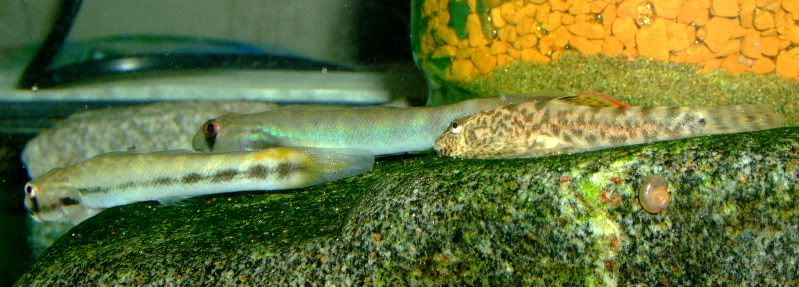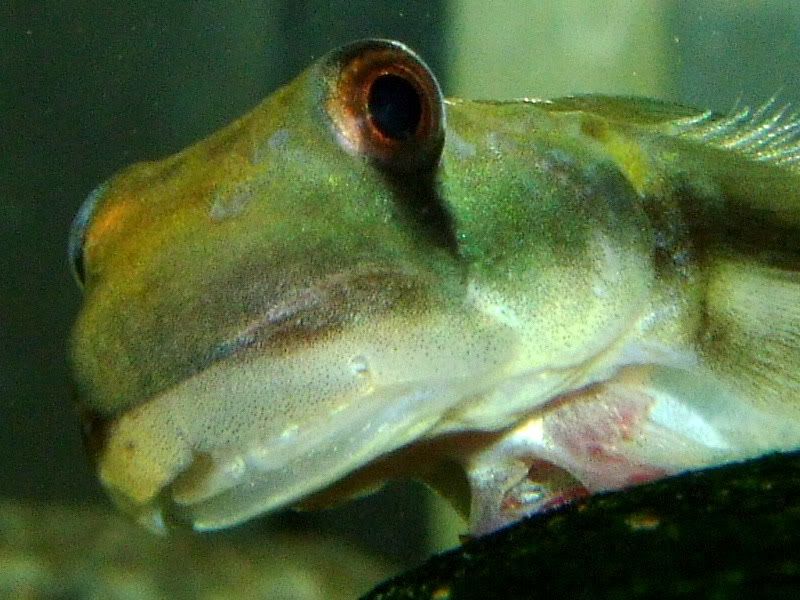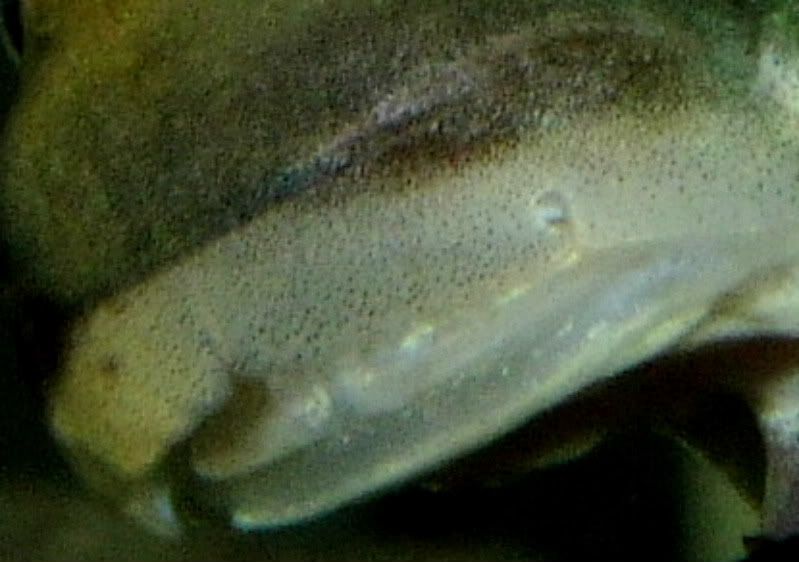Hi odyssey,
Thank you for the pictures, they look great.
The store meant, mine were imported from Myanmar. I googled some from there, and googled much in general, what I found was partially contradicting pictures... and they change their appearance instantly too (even during reaching for the camera). They look most like Sicyopterus lagocephalus, but I am uncertain regarding the discribtion.
http://www.fishbase.org/Photos/Pictures ... at=species
http://www.fishbase.org/Photos/Thumbnai ... hp?ID=9994
could be any other too, like Sicyopterus cynocephalus, I don’t care, I love them anyway, these are cool and interesting chaps. They are my substitute for mudskippers.
To be more precise I would need to check the number of branched rays in the second dorsal fin, the color pattern of the body and fins, the number and shape of the premaxillary teeth, and the size, shape and number of scales on the nape, abdomen and the caudal peduncle... too much work, need more time and patience and a better microscope.
In the following picturtes I tried to capture a few different looks of the 9(10) fish, I guess they are all the same though.
One smaller one (and still a bit skinny) died after the 3rd „ich“ treatmeant, with really high temperature this time. I saw that appearance of dead fish is described, perhaps that helps to define (?). It shows little red in the fins and a black&white ornament in general. Only once I saw onother alive with similar colours, so I was scared it would die soon, but it’s still with me (I lowered the temperature right away though).
Here the dead one (I checked it only roughly, and found no divider in the throat (Stiphodon appeared to me to have one), their little backwards bent teeth also are differently arranged as on Stiphodon. I notized something (almost) like a tounge (thickned area). Specially the lower jaw has a completely different design as Stiphodon, who’s lower jars appears more like a simple kind of a triangular. The Siciopterus one comes closer to a trout (very symbolically spoken).
http://i119.photobucket.com/albums/o143 ... 0128-F.jpg
the live one with similar colours as above (seen only once)
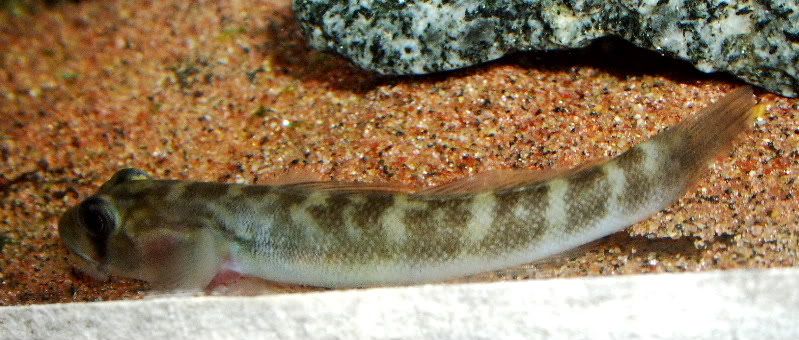
This view works good to check for ich
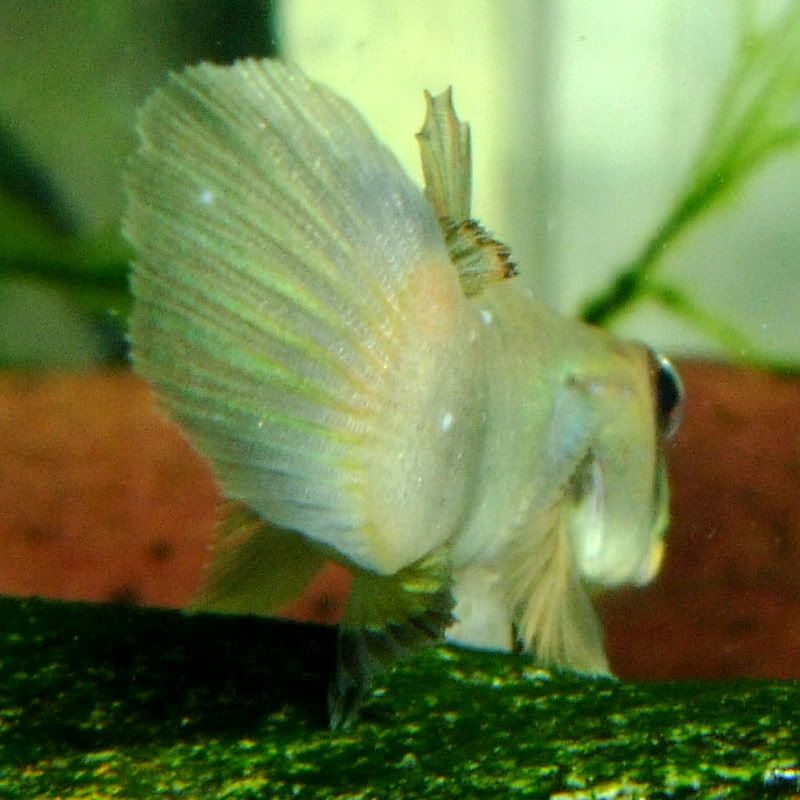
I hope that is a dead ich-spot (I bought a new bottle of the sera.stuff, that claims to be able to kill „ich“ inside the cyst too).
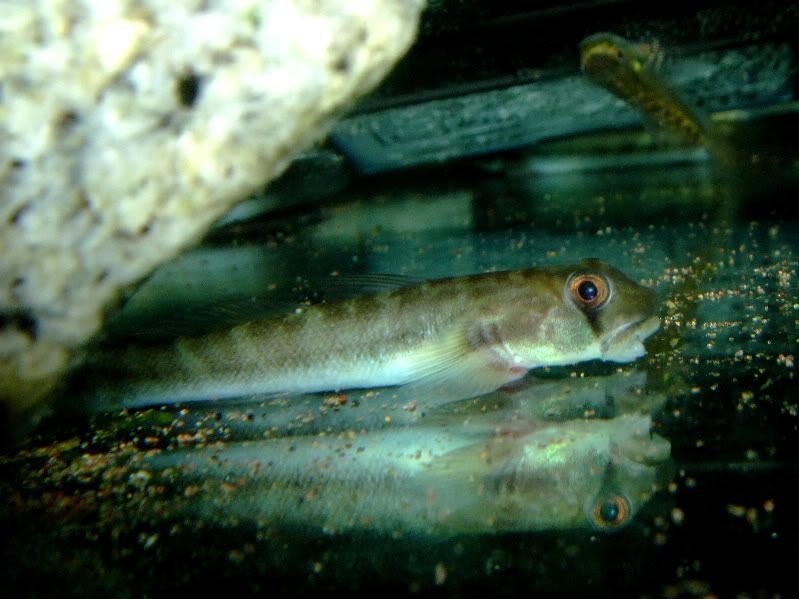
one side if the q-tank
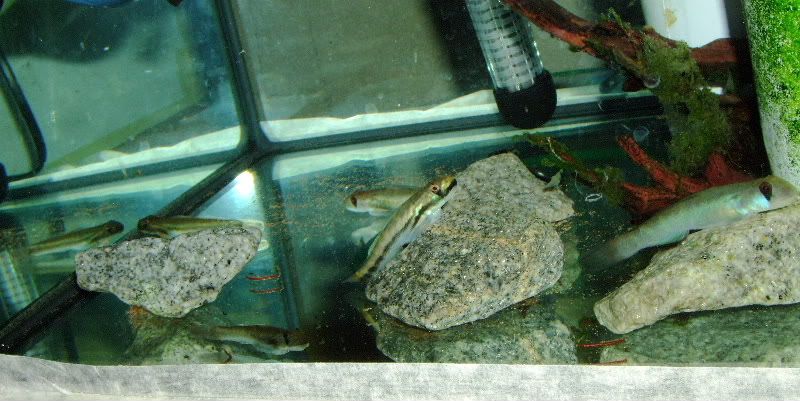
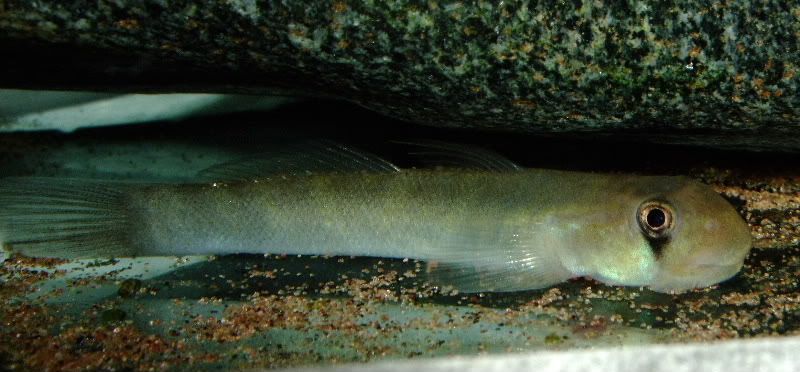
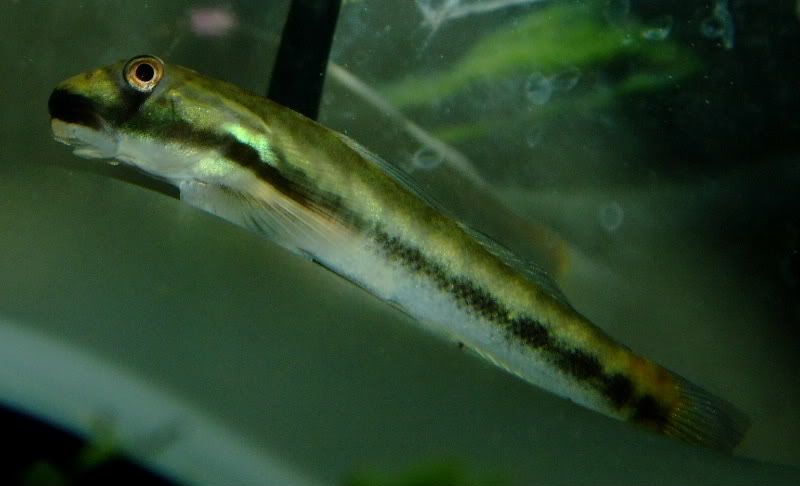
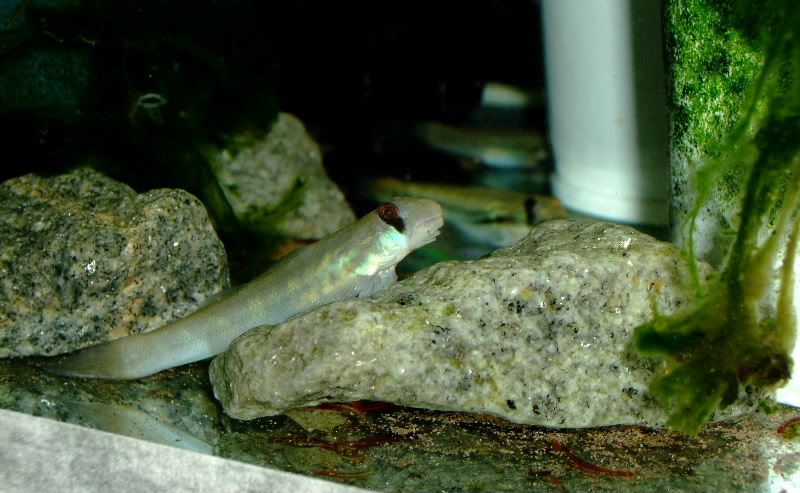
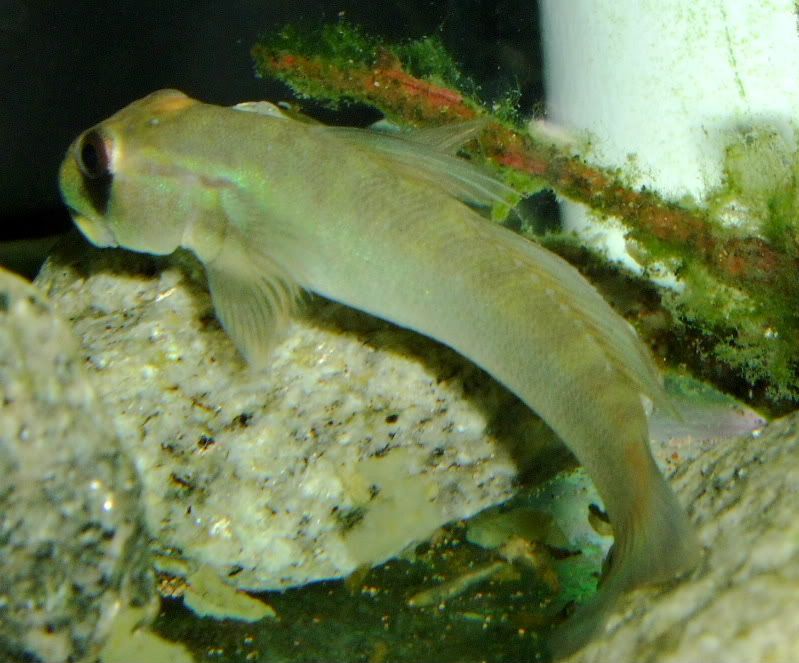
The pseudogastro’s took the heat well, so far
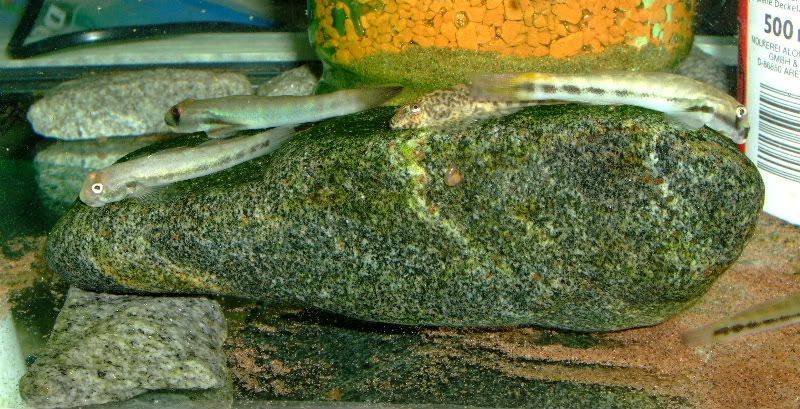
Here some yellow and blue could be spotted (if one wanted to) on the Sicyo. The colours turned out for only very short, on some specimen, during the waterchange and mixing the somewhat lower temperature.
